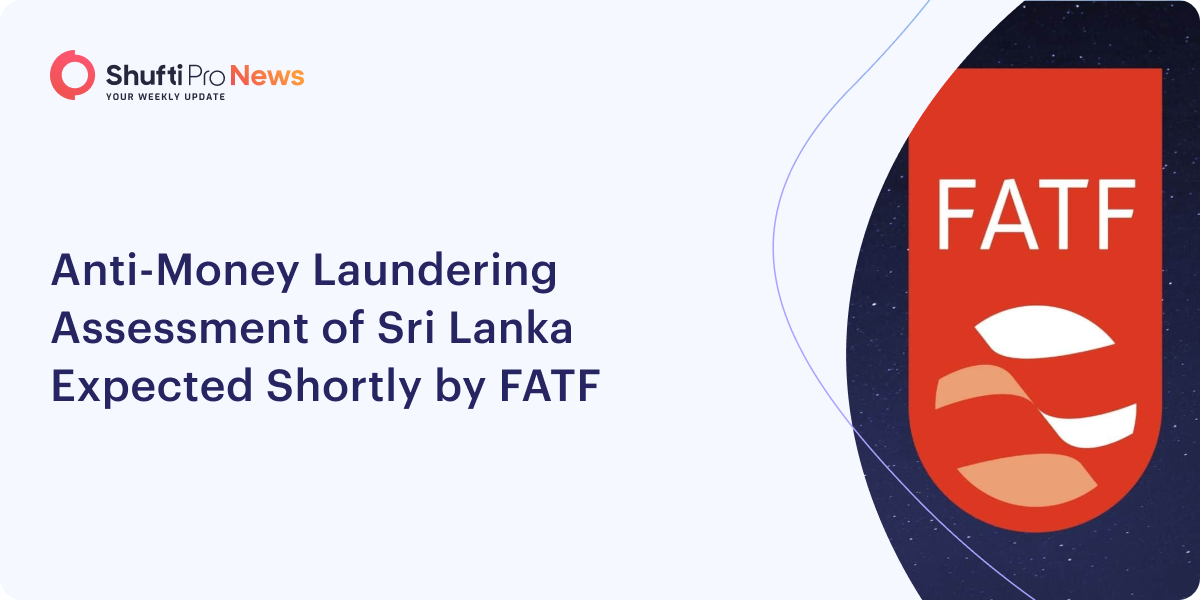Anti-Money Laundering Assessment of Sri Lanka Expected Shortly by FATF

In a recent statement, President Ranil Wickremesinghe announced that Sri Lanka will begin its next AML/CFT country assessment soon, which will be crucial in attracting foreign investment and ease of business.
Sri Lanka has recently announced that it will be included in the upcoming country assessment on counter-terrorism financing and anti-money laundering, which is essential to attract investments and business efficiency in the country. Sri Lanka’s compliance in these areas is crucial for improving its ease of doing business and attracting foreign investors and capital.
During discussions, it became clear that the most pressing issue is identifying and eliminating gaps in the counter-money laundering and counter-terrorism financing framework. Sri Lanka may again be classified with strategic weaknesses.
To ensure the effectiveness of the International Monetary Fund (IMF) program, Sri Lanka must focus on bridging these gaps as a matter of urgent necessity. Citizens are frequently required to appear in court due to bureaucratic challenges and legal difficulties. During the debate, participants recall occasions when significant infrastructure projects were completed within specified time frames, despite the ongoing war. As a result of the current administrative structure and an overabundance of lawyers, the project cannot be completed on time, necessitating a thorough review.
Several recommendations are made to address these challenges effectively, including the convening and composing of a joint report by all stakeholders, the judiciary, the bar, the government, and the legislature. By collaborating in this area, Sri Lanka will be able to identify a path forward for resolving the legal backlog. To resolve various issues and achieve broad consensus, a national policy is formulated by parliament rather than the cabinet.
President Ranil Wickremesinghe said in his recent speech, “As the government representative, along with the three-panel members, I will address the issues raised. One of the primary complaints has been the bureaucracy, laws, and the increasing frequency of court visits. Reflecting on my 17 years in government, during the first ten years, we successfully constructed seven large reservoirs in the Mahaveli scheme and Samanala Wewa and LunugamVehera outside of it. We also built the Left Bank canals and Right Bank canals and completed all these projects on time.”
When referring to President Jayawardena and the achievements of his era, he stated, “During President Jayawardena’s tenure, we established two investment promotion zones and a new capital with a parliament, along with several buildings along with more investment promotion zones, including 200 garment factories. However, the current circumstances make it challenging to achieve similar results. Therefore, we need to re-evaluate the entire administrative structure. Regarding the backlog and law delays issue, which Justice Priyantha Gunawardane emphasised, I propose that all stakeholders, including the bench, bar, government, and parliament, come together to produce a unified report. This would facilitate parliamentary action and allow input from opposition lawyers.”
The necessary steps can be worked out quickly if we all convene. According to Wickremesinghe, he will ensure that the Secretary of the Treasury and the Treasury Department participate in the process, depending on the available resources. In some cases, these problems can be attributed to the absence of a national policy. Sri Lanka’s constitution places responsibility for forming national policies on the parliament rather than the cabinet, although most governments have neglected to do so. Therefore, a committee on national policy has already been established to implement this system. Aiming for the broadest consensus possible on a variety of topics, ensuring their implementation, even if agreement among all may not be possible
First and foremost, Srilanka should unbundle the Ceylon Electricity Board (CEB) to resolve the energy issue. An Asian Development Bank advisory was issued in 2003, but a government decision to unbundle was reversed due to labour union influence.
Second, is the issue of renewable energy, according to the president. Under the 13th Amendment, Sri Lanka has two renewable energy authorities; the Provincial Councils govern the first, and the Hydroelectric Authority governs the second. National grids remain incompletely defined, allowing parallel grids to exist. Therefore, the CEB and the Provincial Councils should be balanced by establishing an energy regulator, specifically an electricity regulator.
In concluding remarks, he added, “By looking beyond our borders and adopting a unified policy, we can overcome the challenges we face. Finally, I want to emphasise that we are preparing for the upcoming country assessment on anti-money laundering and countering terrorism financing. Sri Lanka recognizes the importance of addressing identified gaps, strengthening our governance framework, and ensuring compliance. With the support and cooperation of all stakeholders, we strive for sustainable economic development and international cooperation.”
Suggested Reads:
BANK OF LITHUANIA REVOKES LICENCE OF UK PAYMENTS FIRM FOR AML FAILURES
BANK OF QUEENSLAND COMMITS TO ANTI MONEY LAUNDERING LAWS AND RISK MANAGEMENT

 Explore Now
Explore Now













